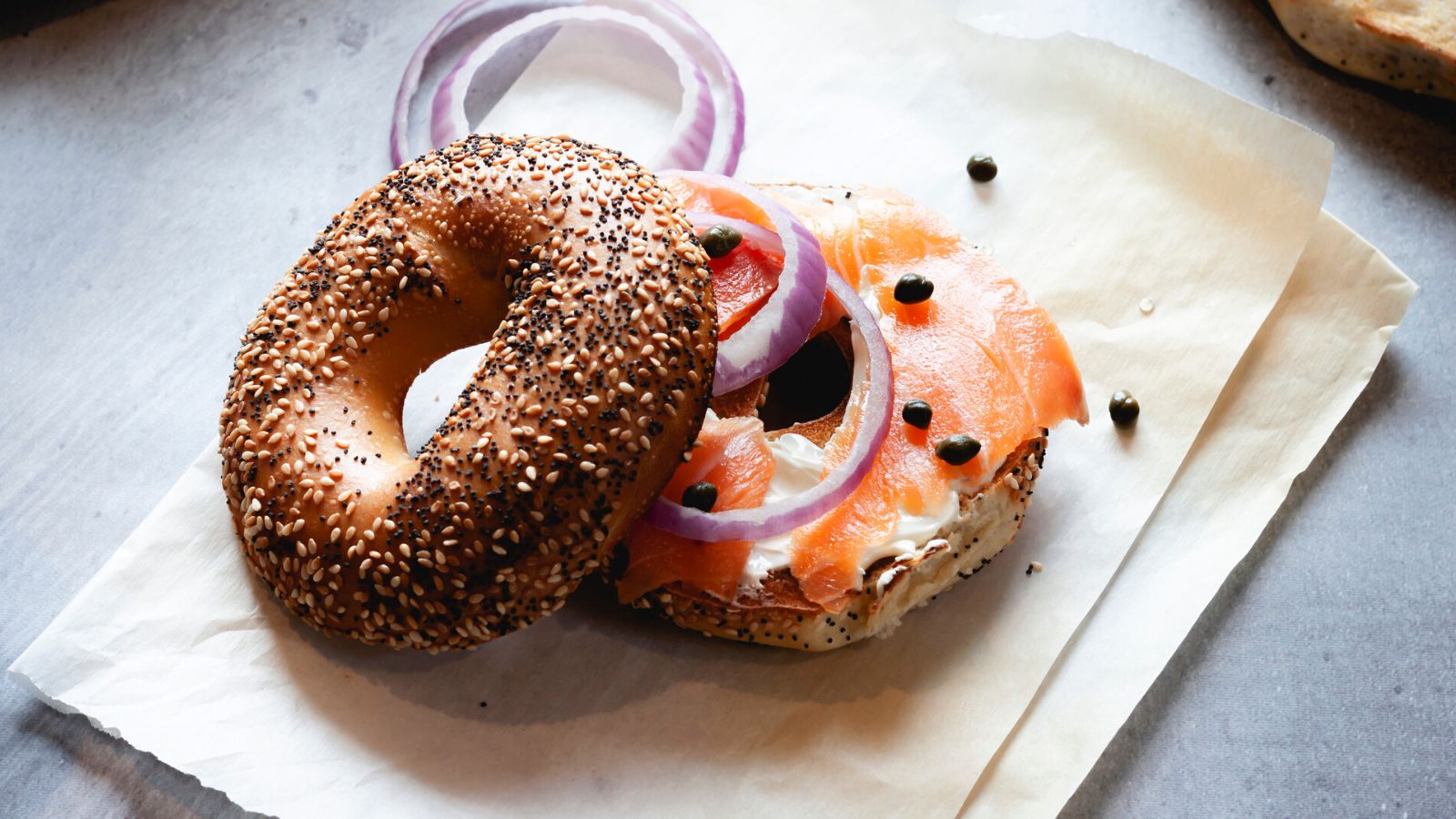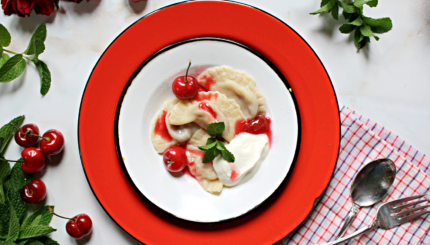As a child growing up in Chicago, one of my favorite places to visit was the Jewish deli. We’d pick up bagels, smoked salmon and kichel cookies, and as a special treat, I was allowed to pick a large green pickle from the barrel, where it was swimming in brine. On the drive home, I’d tuck into that tangy, garlicky pickled cucumber, delighting in the taste of my heritage.
But now that I live in a small city in the far east of England, where many people don’t even seem to have heard of Jews, I thought I’d never taste that sort of pickle again.
I was wrong.
Friends had told me about a stall selling authentic Jewish food they’d encountered at a food fair, but I was skeptical. Still, when I came across the stall myself at a vegan food fair in our city of Norwich, I decided to try it out. The stall was named Bagel or Beigel (the latter, a more common spelling across the U.K.), and had a long line. A blonde pre-teen with a big smile worked the front of the stand, politely listing the bagel flavors on offer.
The Nosher celebrates the traditions and recipes that have brought Jews together for centuries. Donate today to keep The Nosher's stories and recipes accessible to all.
While Bagel or Beigel caters to all diets, their extensive vegan offerings that day included maple-“bacon,” chocolate chip, and jalapeno and olive bagels; a smoked “salmon” (made from carrots) sandwich and a Reuben with vegan pastrami made from scratch. And yes, she reassured me, the jars of homemade pickles were most definitely Jewish-style.
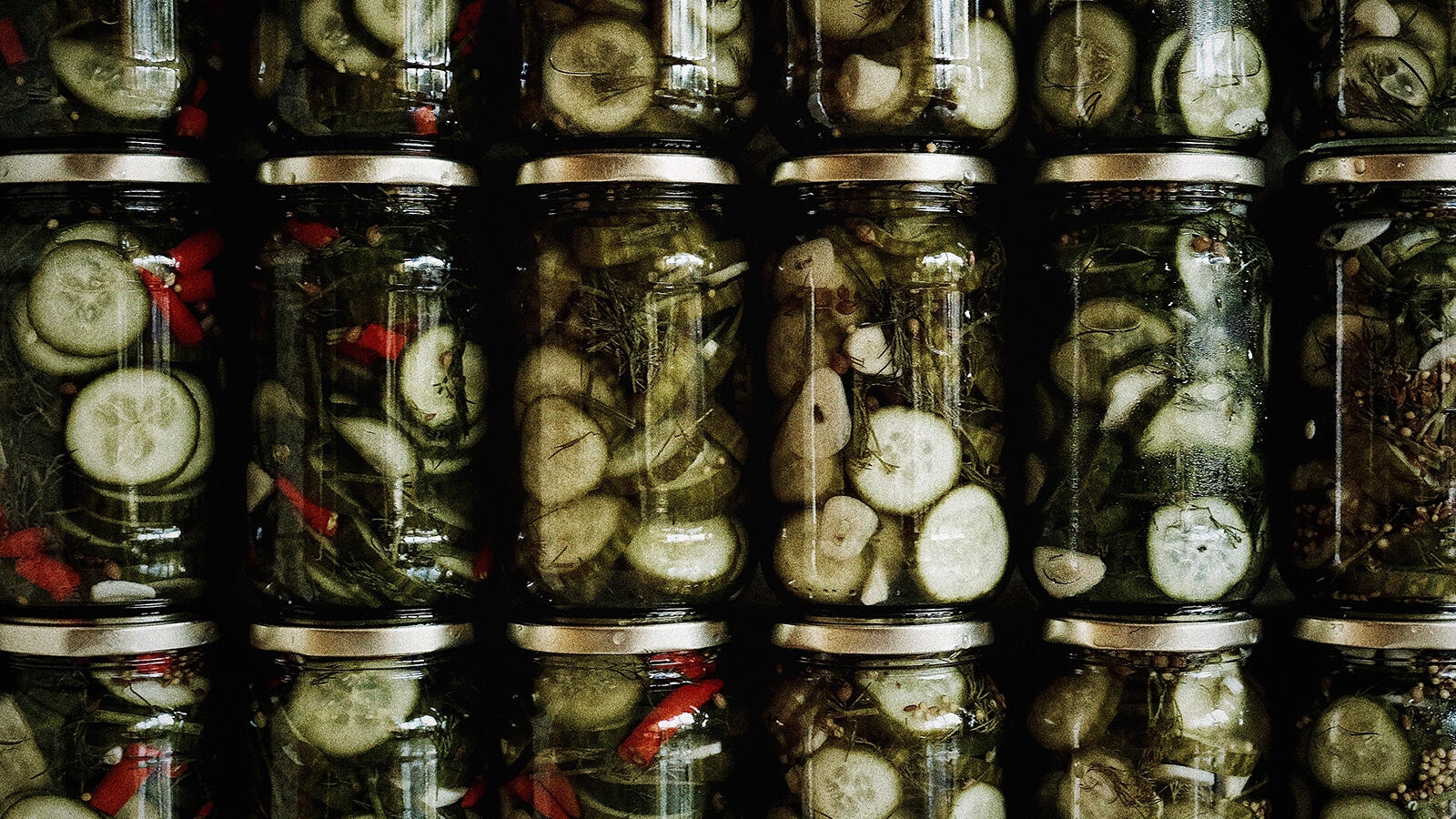
As my daughters and I waited for our food, I realized that one of the reasons the line was so long was because the heavily bearded, very chatty man making up the orders seemed to make immediate friends with every customer. When we finally got our food, we ate it outside in the cold, damp air, but were transported to a Jewish deli. We didn’t speak for the five minutes it took us to wolf it down, then regretted not slowing down to savor it more. The gorgeous tang of pickles snapped in our mouths.
During that visit and a subsequent phone call, I learned that Mr. Bagel himself, Avi Kniznik, was as authentically Jewish as his pickles. Engaging and effusive, he told me about his childhood in Toronto in a modern Orthodox home, one of seven children.
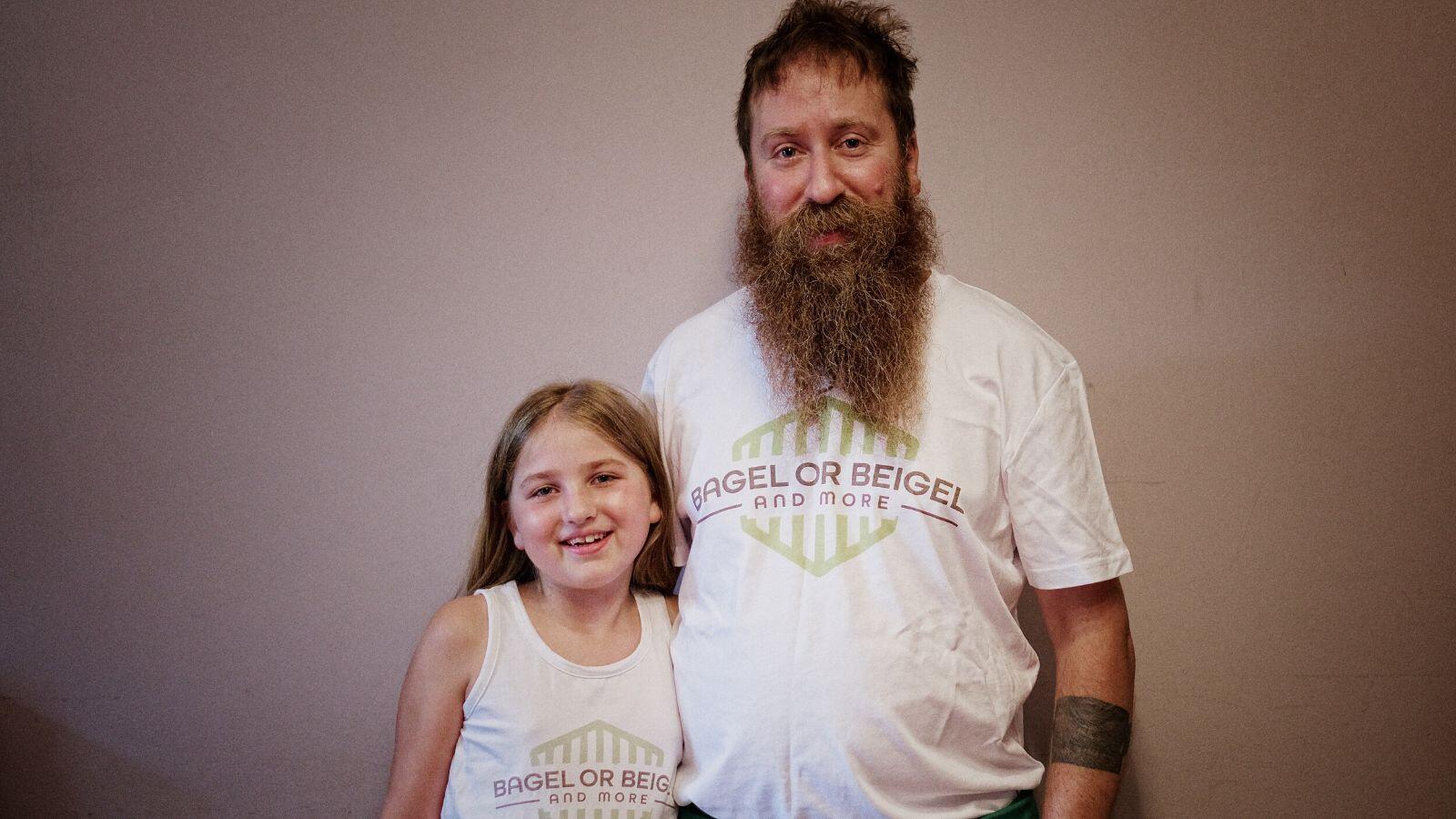
“Not the most academic of people,” he acknowledged, Kniznik worked in bakeries and cafes from the age of 13, and developed a love of photography. At 20 years old, he moved to Israel, landing at a kibbutz where he set up a darkroom in a bomb shelter. From there, he moved to London, where he got a job at a music bar on Brick Lane, near a famous bagel shop. Bagels became a comforting antidote to his long shifts and daily two-hour commute.
In the decade or so that followed, Kniznik moved to east England, settling in the tiny village of Mendlesham (population: under 1,500). He carved out successful careers in the food and photography businesses, and was photographing 40-60 weddings a year when Covid hit. Suddenly, he found himself with no work, responsible for the schooling and childcare of his two children, then 6 and 9.
During lockdown, a neighbor suggested he run a virtual cooking course for the village children. Along with his daughter Poppy, Kniznik shared his recipes for bagels, salt beef and other beloved Jewish foods. He realized he “missed cooking” and, unsurprisingly given his boundless enthusiasm, soon came up with a plan for a bagel business.
He and Poppy started production, and the business expanded rapidly. Deliveries were often accompanied by a much-appreciated socially distanced chat. Before long, Kniznik told me, “bagels were taking over our house, with trays on every surface,” and they had to rent a unit for cooking and packing. Once it was legal again, they started working at festivals and markets; the crowds were huge because people were so glad to be able to get out of the house.
Bagel or Beigel’s customers range from Brits seeking a taste of the U.S., Americans on the nearby air force base nostalgic for the flavors of home, and Jews who “are often rather secretive about it, believing they’re the only Jews in rural eastern England.” This attitude, sadly, is unsurprising given the rising antisemitism in the U.K. Kniznik counts himself lucky not to have received any offensive comments, and uses Bagel or Beigel as a platform to educate people about being Jewish, even at events in rural areas that have a reputation for xenophobia.
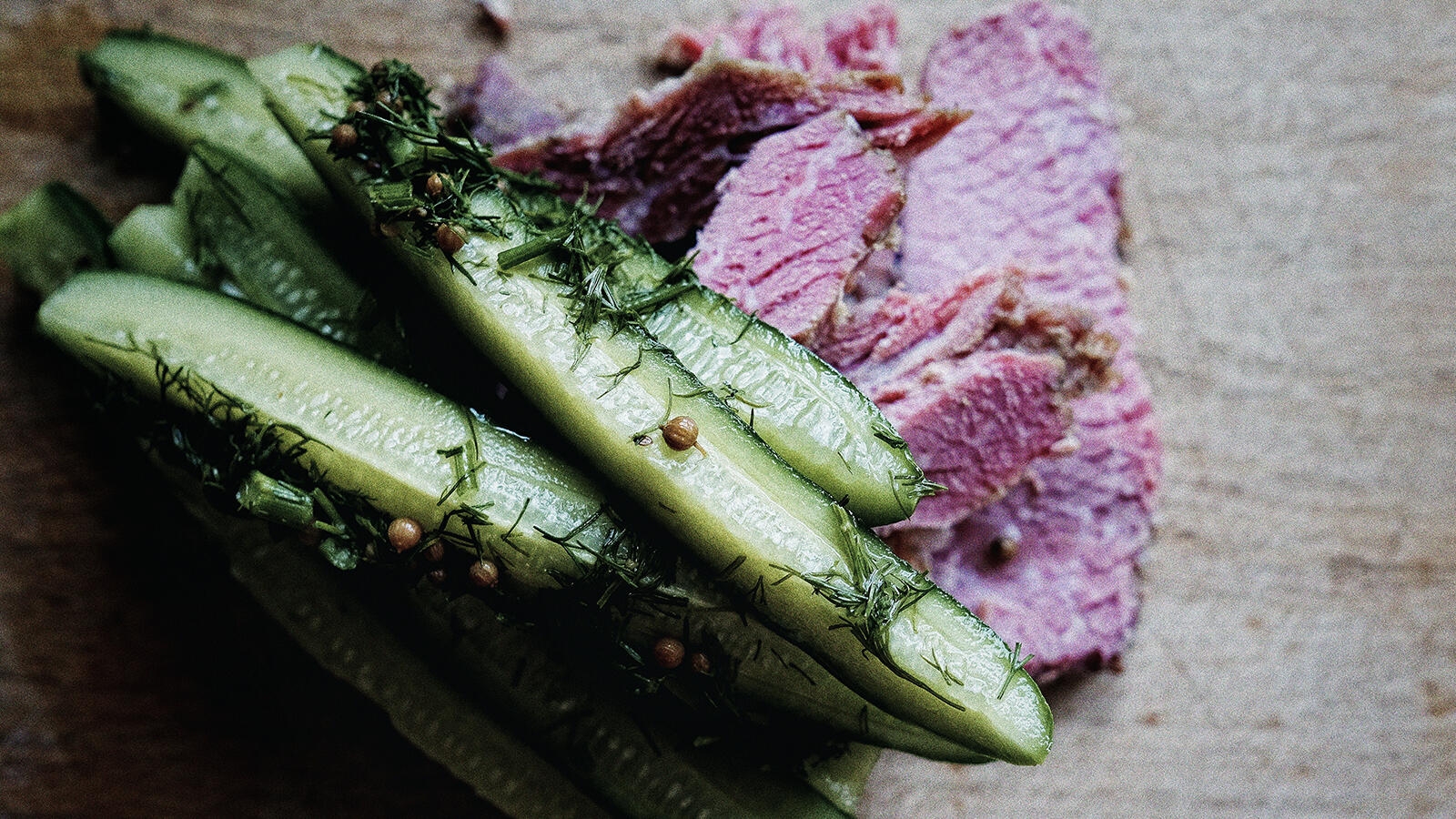
Today, in addition to pop-up market stalls, Kniznik and Poppy (now 11, who he considers his business partner) have an online shop that delivers all over the U.K., and run bagel and challah cooking classes. Kniznik is delighted that they’ve bonded over the business, and that they can “be together, while also connecting to my family background and to our Jewish heritage.”
I’m so grateful to Kniznik for making Jewish food available to me, and have tried multiple bagels (cookies and cream! Pepperoni! Canadian bacon! Wholemeal everything!) and many, many more pickles since that day at the fair. Now, not only can I access a taste of my childhood, but I can help people learn about my Ashkenazi background via Mr. Bagel’s Jewish eats. In a country where a famous baker published a book describing challah as “Jewish Passover bread” (how did no one fact-check that?) and there’s a general reluctance to label products as Jewish (boxes of matzah tend to just say “crackers”), this means everything.
